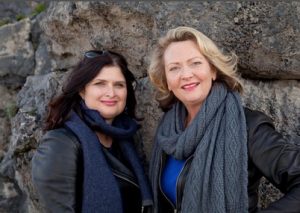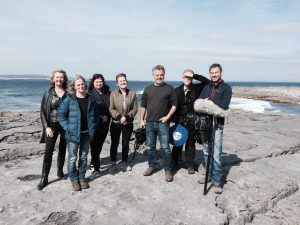Do you ever think about the lack of women representation on TV quiz shows or on panels of experts? How about at conferences and on company boards?
Back in June, Graham Norton featured Joanne Lumley, Jennifer Saunders and Rebel Wilson (Iggy Pop provided music), on his chat show. It was a rare marker showing that the number of women on television chat shows is indeed increasing, albeit it slowly.
However, statistics for gender representation on TV tells a truer story. A survey by Strudel showed that the average gender balance across 37 popular TV comedy shows was 82 per cent men to 18 per cent women.
This is shockingly low and TV programme makers could do a lot better to make TV series more entertaining for women viewers, especially when it comes to all-male line-ups.
In the same survey of nine other general shows on TV, the gender balance was more equal with 48 per cent men, to 52 per cent women.
On television quiz shows we also often see the token woman, which, to me, undermines our capabilities.
Apparently, the BBC’s director of TV has said the panels of programmes Mock the week and QI were no longer to have all-male line ups.
I asked Dara O’Briain why he didn’t give women a chance to be on his shows and he said comedy was a tough game, and that there just aren’t enough women out there. “Dara O’ Briain battles Twitter criticism following comments about female comedians”, ensued.

Sandra O’Connell with Angela Brady
My co presenter and writer, Dr Sandra O’Connell, and I have just finished making our TV series, Designing Ireland.
The production team consisted of mainly women including two producers from Newgrange Pictures, a female director and two female assistant directors.
The two men present were our cameraman and soundman. We all got on great and made a totally professional TV series.
More importantly, we didn’t need to declare that we were mostly women, or that our experts interviewed on the show were mostly women.
Viewers recognised this and people commented in a positive way on Twitter. It was noticeable that the programme had so many women who were valued for their professional opinions.
As president of RIBA I ensured gender balance on all my panels without having to shout about it, as I wanted to do it seamlessly.
I spoke at dozens of conferences around the world, where I was often the only female speaker, so I made sure to point this out in public.

Design Ireland production crew
A gender balance will bring better lateral thinking and broader ideas. Women have great communication skills and can offer great insights to many narrow-minded male-orientated boards.
It’s no wonder that women on boards have been proven to be beneficial for business.
The Government backed report by Lord Melvyn Davies, who has been championing gender equality in the boardroom, shows that FTSE 100 companies have met their target of having 25 per cent women on their boards, thus twice as many as in 2011. This now puts them in ninth place out of the 12 leading European economies.
However, the percentage of female chief executives at these companies is down to as little as 3 per cent, so in reality very little has changed since 2011.
Belgium, France, Germany, Italy, and Norway now have mandatory quotas on female board membership. The government’s next target here is for women to hold a third of FTSE 350 board posts by 2020 – let’s see if we can make this happen.
To achieve this, companies need to promote their able women to executive positions as clearly the percentage of women in top positions is still sadly lacking.
There is no doubt that women and men working together make the best decisions. I have sat on many boards and design review panels over the past 20 years where I have felt that my contribution, as well as other women’s, has been appreciated and equal to men’s.
 Recently the Design Council CABE (DCC) asked an outside equality diversity and inclusion (EDI) expert recruitment agency to seek 200 new Building Environment Experts who will carry out design reviews around the country over the next few years.
Recently the Design Council CABE (DCC) asked an outside equality diversity and inclusion (EDI) expert recruitment agency to seek 200 new Building Environment Experts who will carry out design reviews around the country over the next few years.
Clare Devine head of DCC architecture said: “Our design review panels must reflect the society we are administrating, so we ensured we have the most diverse and inclusive panels chosen for their expertise.”
To do this DCC carefully worded their job descriptions in advertisements and ensured a wide range of publicity for them to be seen. This resulted in a new group of experts with 46 per cent women. Let’s hope that having a long list of experts in this area means that others can do the same and seeking gender equality will be thing of the past.
About the author
Angela Brady an architect and she set up award-winning architectural practice Brady Mallalieu, which specialises in sustainable housing and office projects. In 2011 she was elected president of the UK’s Royal Institute of British Architects (RIBA) for a two-year term. She is a past chairperson of the Royal Institute of the Architects of Ireland (RIAI) London Forum. She is a TV personality in Ireland and the UK, taking part in programmes broadcast on RTÉ, ITV and Channel 4.




